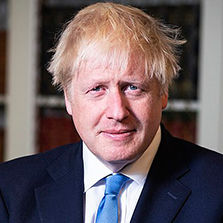
Credit where credit is due. His party and his
country got fed up with his constant transgressions. The business travel
industry was less than happy about his hard Brexit policy, refusing to extend
furlough payments for the sector or his government’s constant tinkering with
border entry policies during the Covid-19 pandemic.
But in 2022 there was one big call Boris
Johnson emphatically got right for travel, for the U.K. and—by being shown to
have made the correct judgment—for the rest of the world too. In February 2022,
and in the face of some criticism, the U.K. government, led by Johnson as Prime
Minister, ended all domestic coronavirus-related restrictions. One month later
it removed all remaining restrictions on international travel too: no more vaccination
requirements, quarantines, tests or passenger locator forms.
The U.K. was arguably the first major economy
to take this second step—Denmark ended domestic restrictions a couple of weeks
before—thanks in large part to a successful vaccination program. At the time of
lifting the international travel rules, 86 percent of the population had
received at least two doses.
After the rules were scrapped, the sky did not
fall in. Mortality and intensive care hospitalization rates continued to fall,
and no significant new Covid variants found their way into the country.
In the succeeding months pretty much every
major economy outside of Asia followed to some extent, although the last
country in Europe to remove all restrictions was Spain, which only in October dropped
its insistence on proof of vaccination, a recent negative test or recovery from
Covid-19. Even now, visitors from other countries to the U.S. still need to be
vaccinated, although pre-departure tests were dropped in June.
Some restrictions (again mainly vaccination
requirements) remain in several Asian countries, most notably China, whose disastrous
zero-Covid policy shows how the rest of the world might be if Johnson and
others hadn’t decided to live with the disease instead.
Johnson was finally defenestrated by his
Conservative parliamentary colleagues in July, the camel’s back-breaking straw
being his mishandling of sexual misconduct by one of his whips. He leaves a
less happy legacy for business travel regarding his decision to end freedom of
movement to and from the European Union as part of the U.K.’s Brexit agreement
with the bloc.
“We’ve had five talents refused entry into the
EU in the last two months,” an attorney for a talent management company told a
BTN event in September, while a specialist migration lawyer advised companies
that “one solution is to stop hiring U.K. nationals where you can to work in EU
countries. Hire EU nationals.”